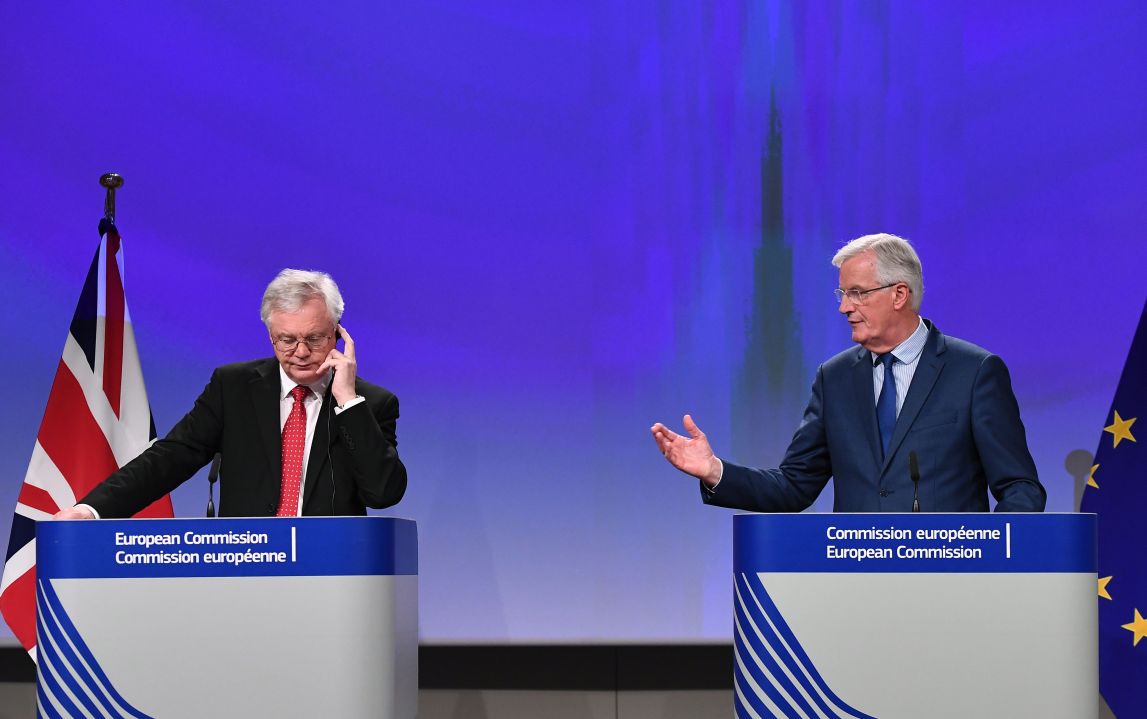For all the talk of a new ‘momentum’ to the Brexit talks since Theresa May’s Florence speech, today’s press conference between Michel Barnier and David Davis certainly had a whiff of déjà vu to it. The EU’s chief negotiator spoke severely of his concerns over a lack of ‘progress’ while the ever-optimistic Brexit secretary played up all the ‘progress’ that had been made.
Despite that ‘progress’, Barnier confirmed – as expected – that he would not be recommending to the EU Council meeting next week that talks move to the second stage, of talking about a ‘future relationship’. However, he did suggest that he hoped this recommendation would come within the next two months – ‘decisive progress is within our grasp’.
But in order to get there, what will have to give? Barnier said it wasn’t a case of making concessions: ‘one of you asked me when the European Union would be ready finally to make concessions, we are not asking Britain to make concessions either’. He went on to say that there’s ‘no question of making concessions’ on the rights of EU nationals, the peace process in Northern Ireland or financial commitments to the EU. This seems to imply that, despite what he says, Britain is the one expected to change its position in order to proceed.
It’s the Brexit bill that appears to be the biggest bone of contention. Both figures said progress had been made on citizens’ rights – though it would involve the ECJ – and spoke of mild headway regarding the Irish border. But neither had much positive to say on the money the UK will pay – saying that they had been reduced to talking only about ‘technicalities’. Barnier was particularly downhearted – describing the deadlock on the issue of money as ‘very disturbing’.
Given that money remains Theresa May’s trump card in the negotiations, it’s understandable that Davis isn’t willing to put all his cards on the table yet. In a sign that Barnier is aware of this, he ended on a more positive not saying he believes ‘we can break this deadlock’ in time for the next EU Council meeting in December.
If that doesn’t happen, the government will need to look closer at the ‘no deal’ option. When Davis was asked in the Q&A whether the UK should be spending money now on planning for that ‘scenario’, he insisted the priority is ‘a good, mutually beneficial deal’. Barnier then chipped in that ‘no deal will be a very bad deal’. If that applies to Britain, it also applies to Brussels.








Comments